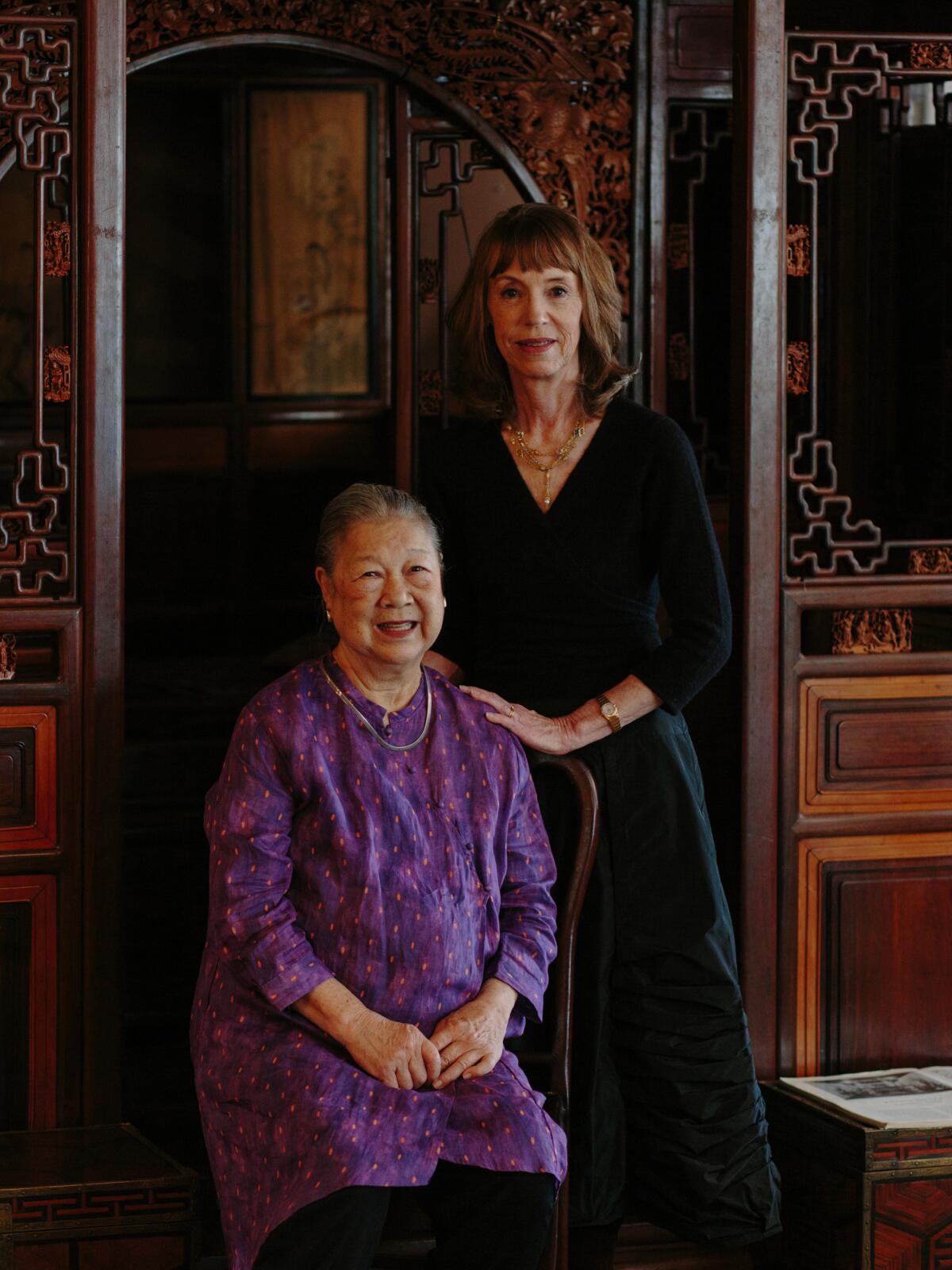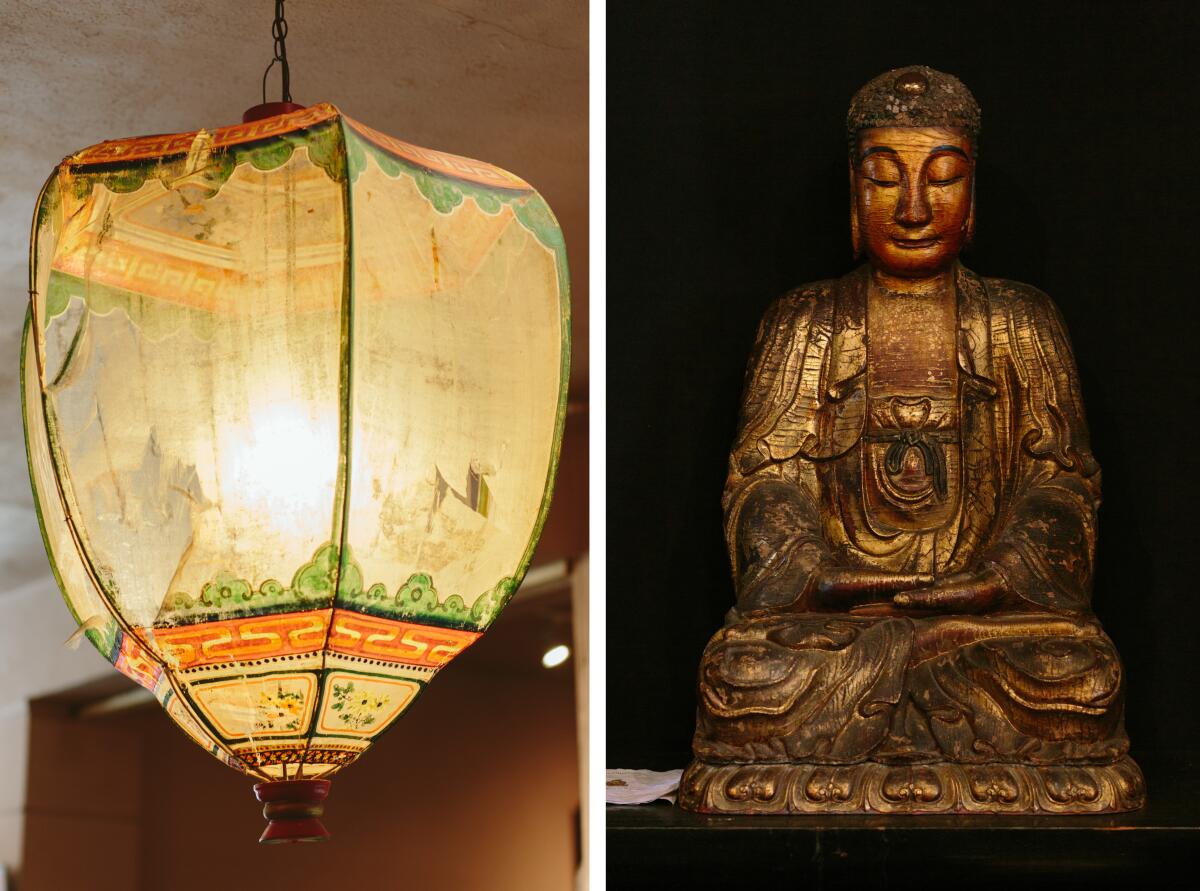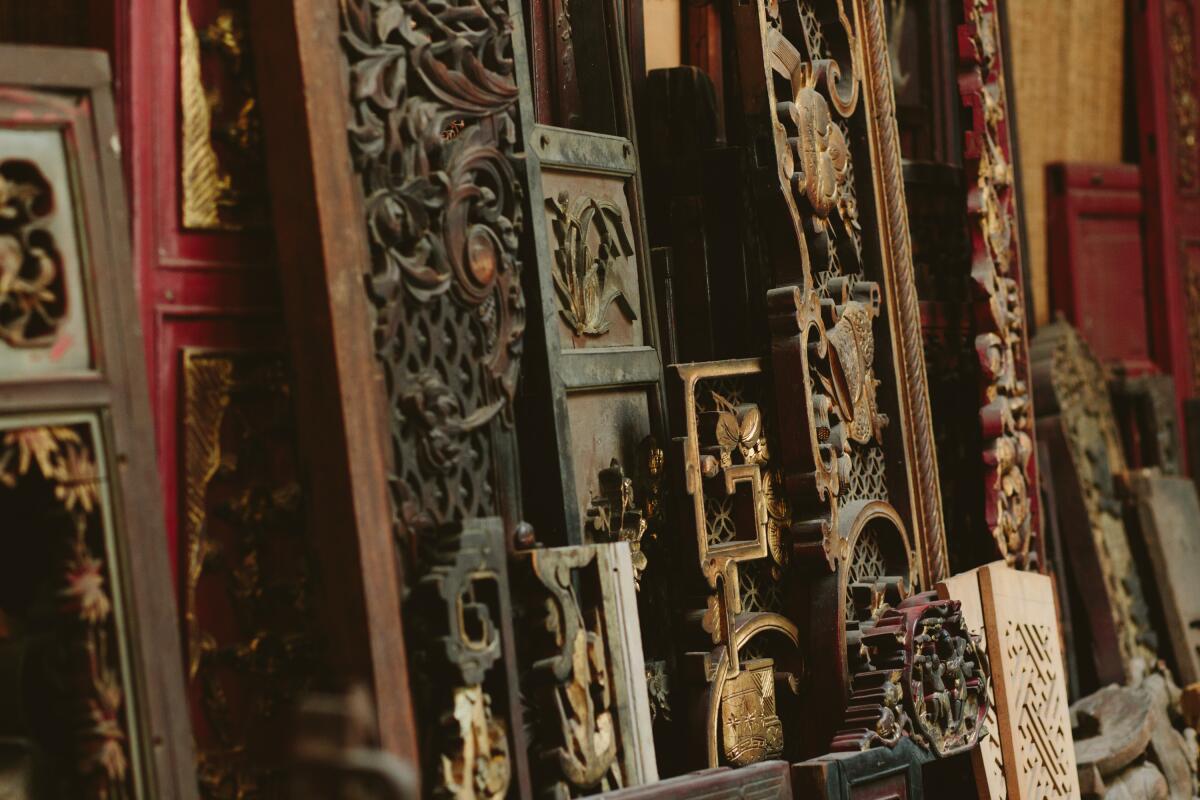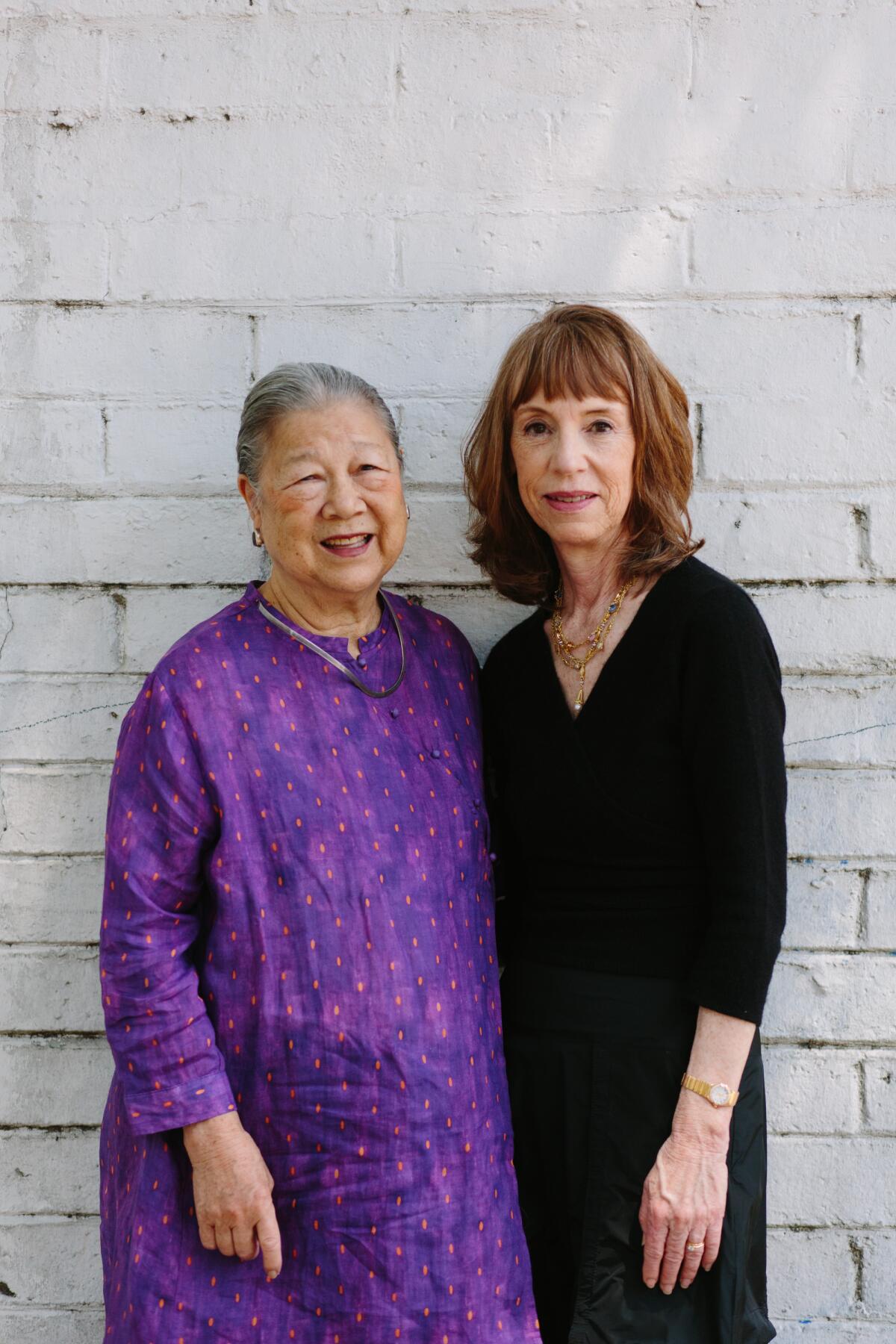The biggest entertainment stories
Get our big stories about Hollywood, film, television, music, arts, culture and more right in your inbox as soon as they publish.
You may occasionally receive promotional content from the Los Angeles Times.

Lisa See began researching her landmark 1995 book “On Gold Mountain: The One-Hundred-Year Odyssey of My Chinese-American Family” in the back room of F. Suie One, a curios and antiques store in Pasadena. Back in 1989, her aunt Sissee, the mother of the store’s current owner Leslee See Leong, had just celebrated her 80th birthday; Sissee thought it was time that Lisa heard the family stories she had long kept to herself.
In a series of conversations over the lunch table, Sissee began to tell Lisa story after story, including how the family had traveled to China with Sissee’s father, Fong See, to collect antiques for the California store he founded in 1888, F. Suie One. She told Lisa he was so successful that he became the first Chinese man in the U.S. to own an automobile. These moments are retold in See’s bestselling book, one of the first major works of nonfiction to tell the story of an intergenerational Chinese American family.
F. Suie One was a central part of both See and Leong’s childhoods, despite the two cousins being a decade apart in age: They often hung out with family in and around the store, located in what was then Los Angeles’ Chinatown. A central setting in “On Gold Mountain,” the shop to this day brims with objects that hold personal significance for them. “We all have memories that are tied to objects,” says See. “And often those memories go back to our childhoods. And they’re less about the object necessarily than they are about the people and stories around them.”
The opera adaptation of her book, with a libretto by See and music by Nathan Wang, is being staged by the L.A. Opera from May 5 to 15 in the Chinese Garden of the Huntington Library in San Marino. The performance will unfold in the Terrace of Shared Delights, with stepped platforms built for audience seating. The production includes actors, a chorus and a professional orchestra in addition to a student orchestra composed of musicians from schools in the region. Select vintage photographs and documents donated by See and Leong to the Huntington’s library division will be projected onto two screens as backdrop. Some props, such as the lamps, baskets and trunks, have also been purchased from F. Suie One for the show.


The opera, which premiered in 2000 at the Japan America Theatre in downtown Los Angeles, tells the story of See’s great-grandfather, Fong See, who arrived from China to California as a 14-year-old in 1871. (In the current production, he is played by Christine Oh as a boy and by Zhengyi Bai as an adult.) He went on to open a store in Sacramento that made and sold women’s underwear. There he met Letticie “Ticie” Pruett, a young American woman who came to work for him. The opera delves into how Fong See and Ticie fell in love and later married via contract, since at that time marriage between Chinese and white people was illegal. Eventually the couple moved to Los Angeles, had five children and opened multiple stores in Southern California.
Ticie was responsible for pivoting the store’s emphasis from clothing and furnishings to antiques. Brooke Iva Lohman, who plays Ticie, sings of this moment in the opera: “The far ahead thinker looks to the future / We only carry antiques now.” After Fong See and Ticie separated, she continued to run F. Suie One. Sissee, who came to inherit the store, moved F. Suie One to its current location in the early 1980s.
Take a step inside F. Suie One today and you’ll find antiques and collector’s items from China, Japan, Thailand and other Southeast Asian countries. A pair of marble lions sit on the left as you enter, an old rickshaw propped in between them, and a stern ancestral portrait on a scroll gazes back at you. As you make your way through the shop, you’ll see works on paper including Tibetan thangkas and tall showcases of Qing dynasty-era porcelains and lacquerware. While pieces have come and gone, several objects have been around since Leong took over in 1989 — such as the two lanterns covered in silk hanging from the ceiling and a large, elaborately carved wooden wedding bed perched against a side wall.

The bed, which was made around the late 18th to early 19th century, is from Southern China, where Fong See was from. Both See and Leong remember playing in and around it and examining the intricate carvings in small panels that dot the bed’s framework. “It’s been something so key in our lives,” Leong notes. The panels show a variety of scenes — a scholar at his desk with an attendant bringing tea, a child riding an ox, a farmer tying together a sheaf of wheat. The bed is also a prominent fixture in See’s upcoming novel, with two of the young characters playing there.
In the main room, two large, six-sided lanterns hang overhead. The lanterns used to be displayed at one of F. Suie One’s past locations in Chinatown, and Leong believes they go back to at least the 1930s. The lanterns are covered in a thin silk gauze that is beginning to shred, and the paintings on them are fading. All this would be prohibitively expensive to repair, so Leong and her husband, Joe Schulman, who runs the store with her, are just letting it age gracefully.
The lanterns are not for sale, Leong says. “We’re just enjoying them, so we’re just hoping that they will last until the last day of the store.”
The biggest entertainment stories
Get our big stories about Hollywood, film, television, music, arts, culture and more right in your inbox as soon as they publish.
You may occasionally receive promotional content from the Los Angeles Times.